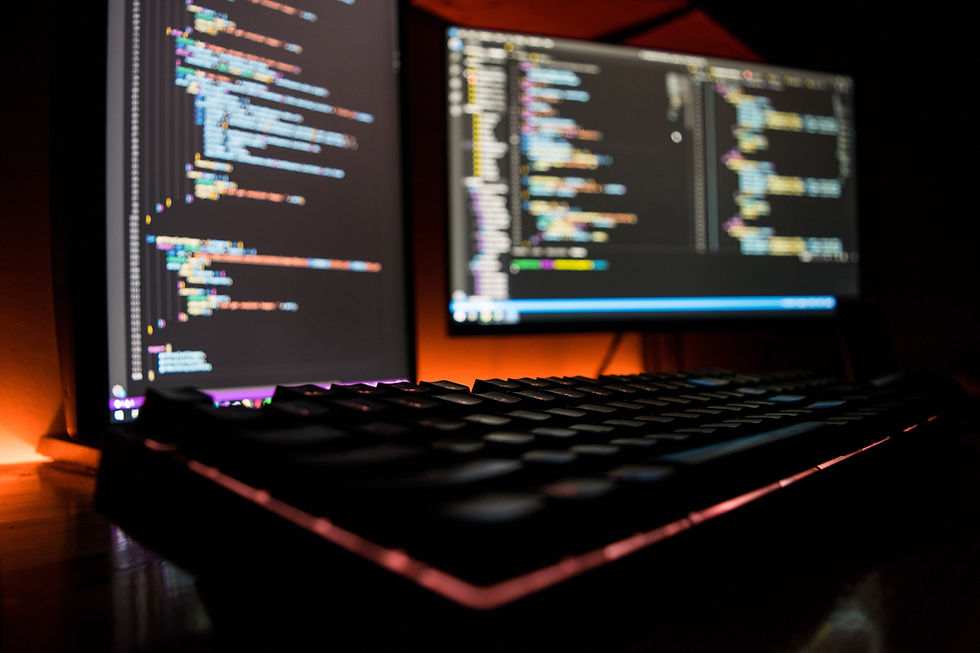How Will AI Tools Shape the Future of Programming?
- Eric Cheyne
- Apr 9
- 3 min read

In the fast-paced world of technology, programming is experiencing a significant transformation driven by artificial intelligence (AI). These cutting-edge tools are reshaping not only how developers write code but also how software is conceived, tested, and launched. This post will unpack the various ways in which AI tools are influencing the future of programming and what it means for developers and businesses.
The Rise of AI-Powered Development Platforms
As programming languages and frameworks become more intricate, AI-powered development platforms are becoming vital for developers. These platforms harness machine learning to aid in code generation, refactoring, and debugging. For instance, tools like GitHub Copilot allow developers to input plain language descriptions of what they need, which the AI interprets to generate code snippets. This capability makes programming more approachable, even for those without formal training.
Moreover, AI tools can analyze existing codebases to recommend improvements or detect vulnerabilities. A study by McKinsey found that using AI in software development can increase productivity by up to 20%. This means developers can focus on creative problem-solving rather than getting bogged down in syntax and common coding issues.
Enhanced Code Quality and Debugging
Debugging has historically been one of the most time-intensive parts of programming. AI tools are making this process faster and more efficient. For example, automated bug detection systems, like Snyk, can identify potential issues before code is executed. By analyzing thousands of code samples, these systems learn to recognize patterns of common errors, leading to a significant reduction in testing time.
Real-world statistics show that organizations implementing AI in coding can reduce bug-related downtime by as much as 30%. This increase in code reliability not only benefits developers by minimizing frustration but also ensures users have a better experience with more stable software products.
Smarter Collaboration with AI Tools
Collaboration is key in software development, especially with the rise of remote teams. AI tools enhance teamwork by automating routine tasks. For example, chatbots integrated into platforms like Slack can automatically answer coding questions or pull up relevant documentation, allowing developers to focus on solving complex problems rather than looking up routine information.
Moreover, AI can assess team dynamics, identifying areas where workflow may be slowing down. By pinpointing bottlenecks, such as team members struggling with specific technologies, teams can proactively address issues. Research indicates that effective teamwork through AI-enhanced collaboration can boost productivity by 25%.
Personalized Learning and Skill Development
The growing presence of AI tools in programming opens up new avenues for personalized learning. Developers at any stage can benefit from AI-driven platforms that adapt to their individual skill levels. For example, platforms like Codecademy and LeetCode provide tailored coding exercises based on a user’s progress, ensuring that learning remains relevant and engaging.
According to a survey by LinkedIn, 94% of employees say they would stay at a company longer if it invested in their learning. Personalized education through AI can help bridge the skill gap in tech, allowing a broader diversity of talent to thrive in the industry.
The Impact on Employment and Job Roles
As AI tools take on more routine coding tasks, the job landscape in tech will change. Positions focused on repetitive tasks may decline, while there will be a greater demand for roles that emphasize critical thinking and problem-solving. According to the World Economic Forum, around 85 million jobs may be displaced by this shift by 2025, but 97 million new roles could emerge that prioritize human ingenuity.
Instead of making developers obsolete, AI tools will augment their capabilities. Developers will need to cultivate their skills in areas such as AI ethics and system architecture. Embracing this change presents a chance for developers to reshape their careers and adapt to the evolving tech landscape.
Ethical Considerations and Challenges
The rapid advancement of AI tools in programming raises important ethical issues. Problems such as bias in AI algorithms and the potential for misuse must be addressed. Developers need to establish strong ethical guidelines to ensure AI technology benefits society.
Promoting transparency, accountability, and fairness when deploying AI solutions is critical. By collaborating and sharing best practices, developers can mitigate risks while harnessing the power of AI responsibly.
Looking Ahead: The Future of Programming with AI
The interplay of AI and programming is undeniably reshaping the field. From improving code quality and boosting collaboration to personalizing education, AI offers a wealth of opportunities for developers.
As the industry adapts to these changes, programming is becoming more inclusive, welcoming diverse talents. Navigating the ethical implications requires responsibility, but the potential rewards are immense. Embracing AI promises greater efficiency and innovation while enriching the developer experience.
Developers must stay agile, evolving alongside AI tools to fully leverage their potential. The future of programming is not just about technology; it’s about the people driving that innovation, and the possibilities ahead are truly exciting.



Comments